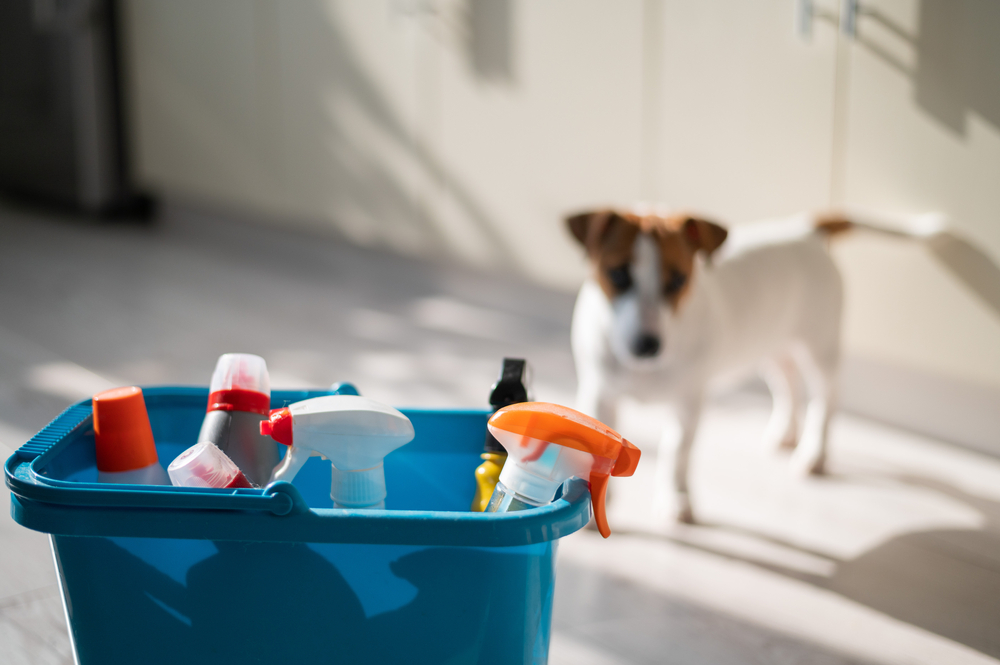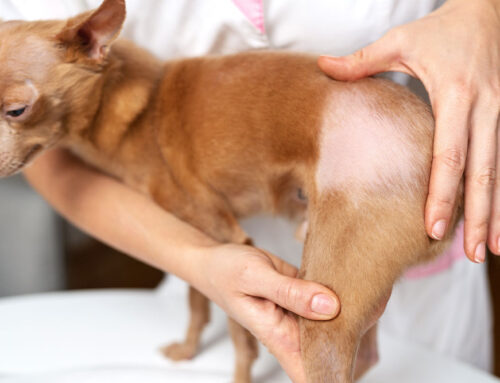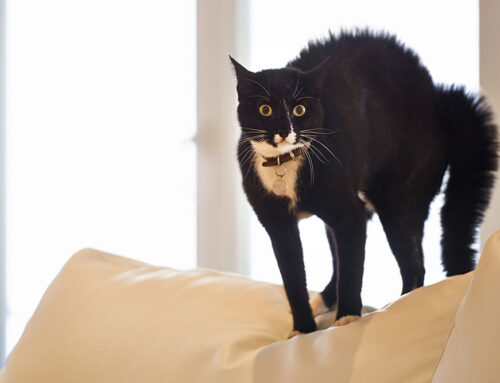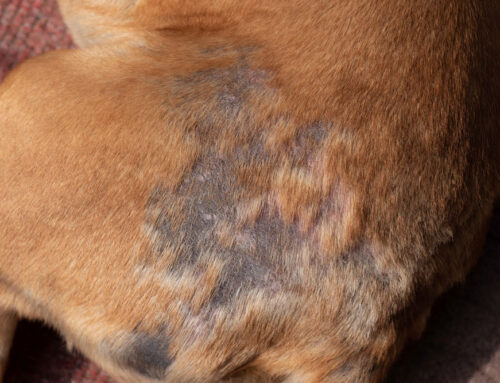Learning that their pet has consumed a toxic item is a nightmare for many pet owners, but unfortunately, this situation is a common occurrence. Like human children, pets are curious and explore the world by putting things in their mouths, which can lead to serious harm if they choose a toxic object. The Tidmore Veterinary Hospital team wants to ensure pet owners keep their furry pals safe from everyday poisons, so we’ve compiled a list of common hazards that could harm their pet and surprise the pet owner.
#1: Pain relievers and pets
Pain-relieving medications, such as Ibuprofen, aspirin, and acetaminophen, are staples in most homes. We use these medications to treat our everyday aches and pains, and some pet owners believe they can help pets, too. Unfortunately, human NSAIDs and similar drugs can cause gastrointestinal ulcers and blood cell, kidney, or liver damage in pets.
#2: Candy and pets
Several foods are toxic to pets and can sometimes be deadly. Chocolate and raisins are well-known toxins, but you may be less familiar with an ingredient in sugar-free candies, gums, and baked goods called xylitol. This sweetener is popular in human foods and oral care products, because it affects dental health positively but has a negligible effect on human blood sugar. However, xylitol can cause severely low blood sugar and liver damage in pets.
#3: Electronics and pets
Electronic devices can harm pets in several ways. For example, pets who chew on electrical cords are at risk for burns or electric shock, but cordless devices can be equally dangerous because of batteries. Batteries contain caustic chemicals that can seriously burn your pet’s gastrointestinal tract and possibly become an obstruction if ingested.
#4: Lilies and cats
Dogs and cats often enjoy chewing on greenery, including household flowers and plants. However, cats who chew on or ingest any amount of any part of a lily plant can rapidly develop life-threatening kidney failure. Many other plants also are toxic to pets, so consult the ASPCA list of toxic and non-toxic plants before redecorating your home or yard.
#5: Adhesives and pets
Some adhesives can cause pets surprising problems. In particular, some wood glues can expand in the stomach rapidly after ingestion and result in a serious obstruction. Only a small amount of ingested glue can expand in minutes to four to eight times its original volume.
#6: Prescription creams and pets
You may not recognize the danger of a prescription topical cream or ointment, since some people do not register these products as medication with harmful ingredients. Creams designed to treat skin conditions, such as psoriasis or eczema, and those intended to absorb through the skin for a systemic effect, such as estrogens or anti-inflammatories, can also be absorbed in your pet’s skin or GI tract and cause harm.
Pet-proofing your home
Pet-proofing your home is the best way to prevent accidental exposure to toxins. The list of surprising toxins above is far from complete, and you should assume that most household items are potentially harmful. Consider the following strategies:
- Store all chemicals, medications, and personal items on high shelves or in cabinets your pet cannot open.
- Hang up high bags, backpacks, and coats that could contain hidden toxic items.
- Ask guests to keep luggage zipped to prevent pets from rummaging through.
- Keep your home and floors free of clutter.
- Secure trash cans out of your pet’s reach or invest in cans with locking lids.
- Never medicate pets without first consulting our veterinary team.
- Keep pets out of the kitchen during mealtimes.
What to do if your pet ingests a toxin

Several professional services can help pet owners determine what to do when their pet ingests or contacts something poisonous. If you suspect your pet has ingested a toxin, contact the ASPCA Animal Poison Control Center or the Pet Poison Helpline to speak with veterinary professionals trained in toxicology. After you provide details about the toxin and your pet, the helpline staff will recommend a course of action that may involve home monitoring or emergency veterinary care.
Protecting pets from tragic poisonings requires planning and vigilance. Knowing which items could harm your pet and what you should do if an accident occurs will help keep your furry pal safe. If your pet contacts or ingests a toxic item, contact the Tidmore Veterinary Hospital team or local emergency facility for prompt treatment and the best chance at a positive outcome.








Leave A Comment